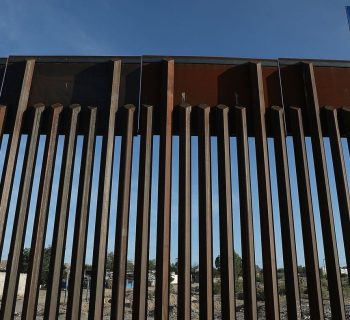Karina Ruiz is the first Mexican migrant to occupy a place in the Mexican Senate. She arrives through the plurinominal route and championed by Morena, but she assures that she is going in search of benefits for those who had to leave Mexico.
By Marco Antonio Martinez | La Silla Rota | June 10, 2024 | Photo Courtesy of Karina Ruiz | Translated by the CMSC
After following a legal path that allowed the creation of 'affirmative actions', the community of Mexicans abroad is moving forward to position itself in the Mexican Congress. The figure of migrant deputy was achieved at the federal level and in local congresses, but now, there will be a seat in the Senate of the Republic, from where they will fight so that Mexicans abroad are not only seen as a remittance, but also as people who have needs, which, from Mexico, can be solved.
Karina Ruiz came to the United States when she was 15 years old, as a teenager. Together with his parents from Tlalnepantla, she crossed Mexico to the north and crossed the border with the dream of working for a year, making money, and returning to her homeland and starting a business.
But 24 years later, she is still in the United States, in Phoenix, Arizona, and now she has become the first Mexican migrant senator to hold a seat in the Upper House in Mexico.
Karina Ruiz now has 3 children and the oldest, 22, also fathered three, so she is already a happy and proud grandmother.
The next legislator knows the problems and difficulties of the countrymen living in the United States. He studied in Arizona at university. She is one of the thousands of migrants who became dreamers, young immigrants who dreamed that they could become U.S. citizens thanks to the Dream Act, a legislative project that was born in 2001 but has not yet fully come to fruition.
She is also a beneficiary of DACA, a program created in 2012 that provides protection from deportation to people who arrived in the United States when they were still minors. A program that Donald Trump threatened to eliminate, which is why Ruiz nicknames the former president, 'the unmentionable'.
Ruiz experiences directly and indirectly the effects of the lack of immigration reform. Because of this, his mother continues to be irregular and lacks access to a retirement savings system. And he knows that thousands of people because of their immigration status cannot cross the border to see their families, sometimes to say goodbye to their loved ones.
But he also perceives that the Mexican authorities do not provide care to Mexicans abroad. An example was what happened just last June 2, when the copious participation of those seeking to vote overflowed some consulates.
That is why she is committed to representing them before the Mexican Senate.
We have been forgotten
Born in Oaxacan parents, Ruiz was born in Tlanepantla, State of Mexico, and Ruiz expresses her happiness for the results obtained in the election on June 2, 2024.is historic that we have the
- Why is it important for Mexicans abroad to have a representative?
Because there is no such representation in the Senate. The reality is that we have experiences, experiences and needs that are unique from the outside and we have no one right now to advocate for us. In the Chamber of Deputies this figure does exist, there were 11 in this legislature. We see that the number is going to increase a little there in the next legislature because Oaxaca and another state included the migrant deputy, but it is insufficient. They have forgotten us a lot.
- What needs do they have?
-To begin with, the consulates. They have advanced, but they do not have enough capacity. That has to do with the budget. To attend to the number of Mexicans abroad, it is said that there are between 38 and 40 million and with 53 consulates in the United States, which is where the majority is concentrated, it is insufficient for them to be able to attend and provide us with a type of protection, especially in places like Arizona, Texas, Florida, where we are seeing these anti-immigrant laws that are beginning to harm us.
Ruiz says that for those who do not have access to a retirement fund, such as his mother, the Welfare for the Elderly pension would be very useful."Jey should have."
He adds topics such as education and that Mexican children abroad do not lose their mother tongue, increase the exchanges of students of Mexican origin and that they go to Mexico and Mexicans, not only from private schools but also from public schools, that they have the opportunity to go to the United States to study.
Voting abroad
Even health support is required, because in the most conservative states with the most recalcitrant anti-immigrant policies, that right is denied. It also seeks to support Mexicans who return to their land, but are met with the indifference of the authorities. And that there is the opportunity to vote abroad, he stresses.
We are not only remittances
The upcoming migrant senator explains how her life as an activist began. He did so when Arizona passed a law that tripled the cost of his college tuition. There she began to contact people related to politics and to learn about the subject in the United States and became a social fighter.
Although it took her 12 years to finish her degree in biochemistry, that was the germ of her activism. She did not work as a biochemist. She became the director of a non-profit organization, a position she will have to leave to devote herself to her work as a senator, which will change her life.
- What does it mean for you to be the first migrant senator and thanks to affirmative action?-For me it is very important and an honor to represent and carry that facet of our migrant community. I know that there were people who were fighting for this space to be opened in the Senate because it was necessary, she answers.






